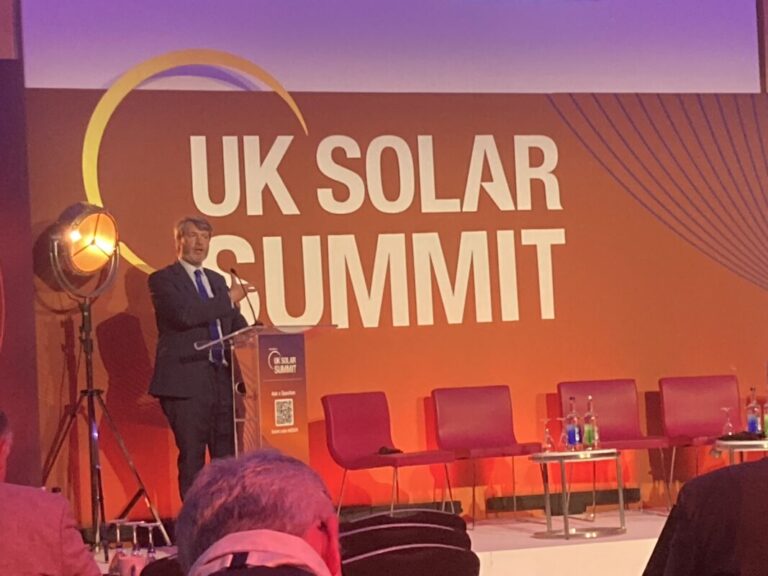“We can’t want progress to happen,” said Rt Hon Chris Skidmore on day two of the UK Solar Summit. He noted that over the summer of last year we saw a shift “in tone, if not policy” of the government.
For Skidmore, reversing net zero was “the start of a path for the government to move away from a trajectory we have been on for more than a decade, with a cross-party consensus that the energy transition has a lasting future”.
“Regardless of who is in government, it will be under their leadership that we need to see CO2 emissions fall; CO2 has no political colours.”
When he resigned – following the Tory party’s departure from consensus – he pledged to “continue to champion the net zero cause, and the opportunities that the energy transition brings.”
He said: “I still believe in markets and economies and that nothing will ever happen unless the voice of business is involved.”
The rollout of solar energy in Britain has been exponential. Skidmore pointed out that if the country wants to maintain its position globally and achieve a net zero network, “we have to keep running to stand still.”
“When we look at the reality of what is happening in Britain, the reality that I highlighted at the net zero review is that Westminster and Whitehall are lagging behind. And we have plenty of companies, plenty of individuals and plenty of conservatives who all recognize the economic case for solar.”
The period leading up to the general election is a time of reflection for the solar energy sector. Skidmore said, “We now have the next 30 days to make the case for solar.”
“While we are in this strange world where we have no parliamentarians, and while we have to wait, take this opportunity to mobilize. Solar energy in particular is the answer, but not every politician knows that.”
Charting a sustainable route to implementation is crucial, especially in light of Labour’s newly stated target of 50 GW of solar by 2030.
“It’s fantastic the further and faster we can go, but you can’t over-promise and under-deliver – that’s the worst thing that can happen as part of the energy transition.”
Skidmore has created the Mission Zero Coalition, which will publish reports on how to advance each of the ten missions outlined in the Net Zero Review.
One of the recommendations in the Net Zero Review was to have a land use strategy that would clearly set out what should be built and where, thus ‘destroying’ the myth that solar farms will take over agricultural land.
“You can talk to farmers who recognize the economic opportunities for diversification. This is both the new agricultural economy and an energy economy.”
Skidmore argued for a counterbalance to Nimbyism, pointing out that polls have shown that people who live close to a solar farm are more in favor of solar farms than the population as a whole.
“As is the case with so many of the necessary transitions, as is the case with so many technologies that we have historically been in transition with, whether it is electricity, or the advent of the gasoline car: you have to fight, and you you won.”


